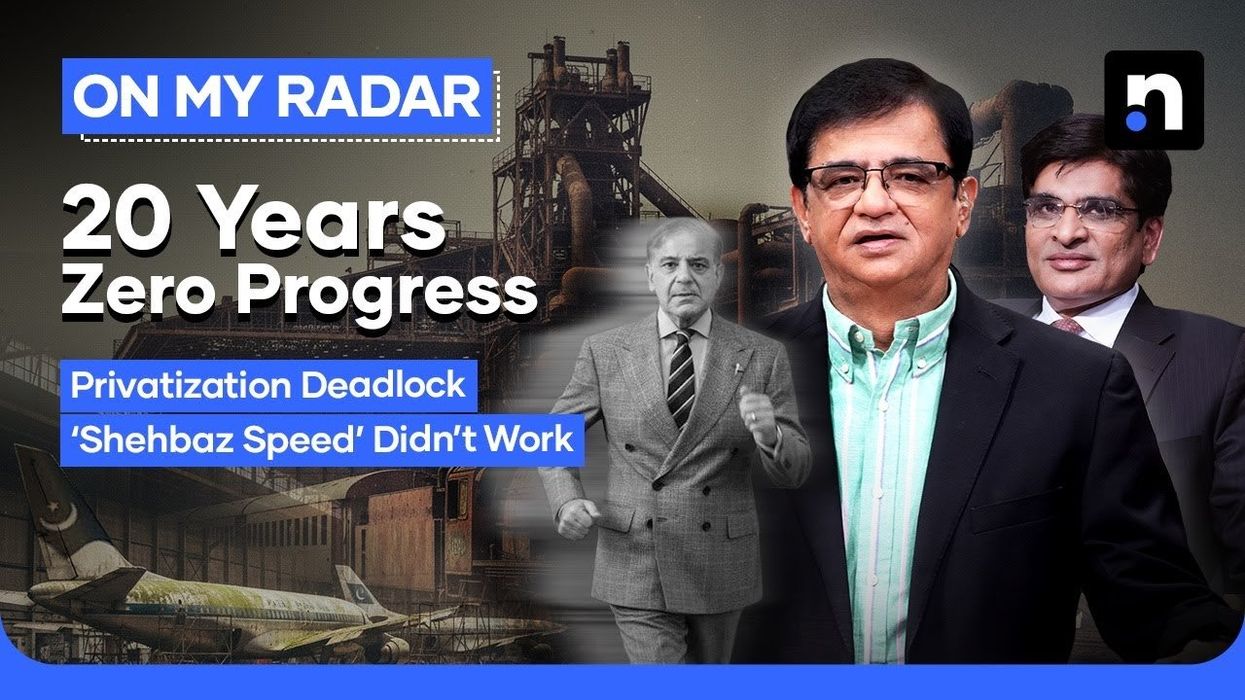Pakistan’s first privatisation in two decades signals reform intent
Kamran Khan says Pakistan’s sale of First Women Bank marks a long-awaited return to privatization
News Desk
The News Desk provides timely and factual coverage of national and international events, with an emphasis on accuracy and clarity.
In what officials described as a breakthrough after years of stagnation, Pakistan has resumed its long-stalled privatization process with the sale of First Women Bank to the United Arab Emirates’ International Holding Company (IHC) for $14.6 million, or PKR 4.1 billion.
The government finalized the government-to-government deal earlier this week, marking Pakistan’s first privatization in nearly two decades. Prime Minister Shehbaz Sharif, Field Marshal Asim Munir, and Sheikh Hamdan bin Zayed Al Nahyan attended the signing ceremony — a signal of the transaction’s political and strategic importance.
Officials in Islamabad hailed the sale as “the first drop of rain in a desert,” reflecting optimism that it could revive the country’s dormant privatization program. But with Pakistan’s state-owned enterprises (SOEs) posting massive losses of PKR 5.89 trillion, the amount raised from this deal remains a tiny fraction of the challenge ahead.
“Better late than never,” Kamran Khan said in his program “On My Radar,” calling the sale a positive but overdue step. He noted that the privatization drive had been virtually frozen since 2005, when Pakistan last sold a major state asset — the Karachi Electric Supply Corporation, now K-Electric.
Between 1991 and 2005, Pakistan privatized several major institutions, including MCB Bank, Habib Bank, United Bank, Pakistan Telecommunication Company Limited (PTCL), and K-Electric. However, a 2006 Supreme Court ruling led by then–Chief Justice Iftikhar Chaudhry blocked the privatization of Pakistan Steel Mills, effectively halting further sales.
The trend remained unchanged under successive governments, with only minor transactions involving buildings and small corporations.
“Given that Shehbaz Sharif has now led the government for nearly three and a half years — first under the Pakistan Democratic Movement and now through the current coalition — it’s fair to ask: where is his ‘Shahbaz Speed’ on privatization?” Khan said.
He noted that Pakistan’s GDP growth hovers around 2.5 percent, foreign direct investment continues to decline, exports have stagnated, and multinational firms are exiting the market — trends that underscore the urgency for structural reforms.
Citing data from the Finance Division, Khan said 15 national corporations collectively lost PKR 5.89 trillion by December 2024 — an amount equal to one-third of Pakistan’s annual budget and roughly 5 percent of its GDP. The worst offenders include Pakistan Steel Mills, Pakistan Railways, WAPDA, the Utility Stores Corporation, and various power generation and distribution companies.
While the caretaker government last year drafted a roadmap for the privatization of PIA, the handover of distribution companies (Discos) to provinces, and reforms in the Federal Board of Revenue, progress has been slow. Ordinances were also issued in December 2023 for the sale of assets such as Radio Pakistan, the House Building Finance Corporation, the National Highway Authority, and Pakistan Post — yet none have moved forward.
According to Khan, the International Monetary Fund (IMF) has pushed for faster privatization before December 2025. In response, the government has announced a new five-year roadmap covering 24 state-owned entities.
In the first phase, the government plans to privatize Pakistan International Airlines (PIA), its New York-based Roosevelt Hotel, the House Building Finance Corporation, the Zarai Taraqiati Bank, and three Discos — IESCO, GEPCO, and FESCO. Interestingly, the most loss-making utilities such as Sukkur, Quetta, Peshawar, and Hyderabad Discos have been excluded from this phase.
Phase two will target major power generation companies, followed by Pakistan Post and life insurance firms in the third phase.
The government’s immediate priority is PIA, with final bids now due on November 17. A four-member consortium comprising Arif Habib Limited, Fauji Fertilizer Company, Airblue, and Lucky Group has been shortlisted. The government has agreed to absorb most of PIA’s debt to make the airline more attractive to investors.
Meanwhile, a joint venture for PIA’s Roosevelt Hotel has been valued at $1 billion, with the first payment expected by mid-2026.
“The bottom line,” Kamran Khan said, “is that while Pakistan’s civil-military leadership has set ambitious targets, political resistance, regulatory hurdles, investor mistrust, and administrative complexities continue to cloud the privatization process. The real question now is whether ‘Shahbaz Speed’ can deliver where past governments have failed.”











Comments
See what people are discussing